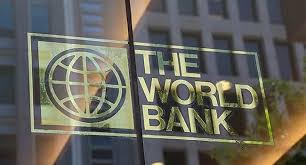The Federal Government of Nigeria recorded a substantial rise in revenue, climbing by 82.4 per cent from N6.8 trillion in 2023 to N12.4 trillion in 2024, according to the World Bank’s latest Nigeria Development Update report titled “Building Momentum for Inclusive Growth.” The significant growth in public revenue was attributed to three major fiscal reforms: foreign exchange (FX) rate unification, improved tax administration, and reforms in treasury remittances.
The World Bank stated that the reforms led to a notable increase in the government’s revenue-to-GDP ratio, which rose from 2.9 per cent in 2023 to 4.5 per cent in 2024—translating to a N5.6 trillion boost in total revenue. Despite the improvements, the Bretton Woods institution noted that Nigeria’s revenue levels remain among the lowest globally, limiting the government’s ability to finance critical development spending.
The first and most impactful reform, according to the World Bank, was the unification of the official and parallel exchange rates. This step resulted in significant revenue windfalls for the government, especially from oil, VAT, corporate taxes, and customs duties that are denominated in foreign exchange. Before the reform, these FX-linked revenues were remitted at an official exchange rate that was about 53 per cent below the market rate, causing the government to lose an estimated N6.2 trillion in 2022 alone.
The second reform involved improvements in tax administration, particularly through the Federal Inland Revenue Service’s deployment of the TaxPro Max digital collection platform and the withholding of Value Added Tax (VAT) at the source in selected sectors. These measures led to an 86.1 per cent increase in VAT collections in 2024, strengthening the non-oil revenue base.
The third key reform was the automation and standardisation of revenue remittances from Ministries, Departments, Agencies (MDAs), and Government-Owned Enterprises (GOEs). This reform, introduced in December 2023, contributed an additional 0.8 percentage points to the revenue-to-GDP ratio in 2024, the report added.
The World Bank also made a strong case for a comprehensive review of Nigeria’s trade policies. It said that arbitrary import bans, high tariffs, and other non-tariff barriers are contributing to price distortions, encouraging smuggling, and weakening customs enforcement, thereby leading to major revenue losses.
The report estimated that Nigeria could increase customs revenues by up to 66 per cent if the government aligns its trade policy with market realities and the ECOWAS Common External Tariff (CET). It warned that current trade restrictions disproportionately affect poor Nigerians by increasing the cost of essential goods like food and medicines.
“Reducing tariffs and import bans would confer direct benefits to consumers, giving them access to more products at lower prices, lowering inflationary pressure, boosting their purchasing power, and offering relief in the context of high cost-of-living pressures,” the World Bank said.
It added that lifting import bans could reduce Nigeria’s poverty rate by an estimated 2.6 percentage points, given that such bans increase product prices by an average of 5.8 per cent—especially those most consumed by low-income households.
The report comes barely a month after the United States Trade Representative criticized Nigeria’s import bans on 25 items, saying the restrictions limit market access for U.S. exporters.
Meanwhile, the World Bank also projected that reforms in Nigeria’s macroeconomic policies, if sustained, could significantly improve the country’s inflation outlook, economic growth prospects, and overall fiscal health. It advised the Nigerian government to leverage the competitive naira exchange rate to promote export growth while making imports more affordable for local producers who rely on intermediate goods.
The international financial institution emphasized that aligning Nigeria’s tariffs with regional standards under the ECOWAS CET would support both economic diversification and inclusive growth.
